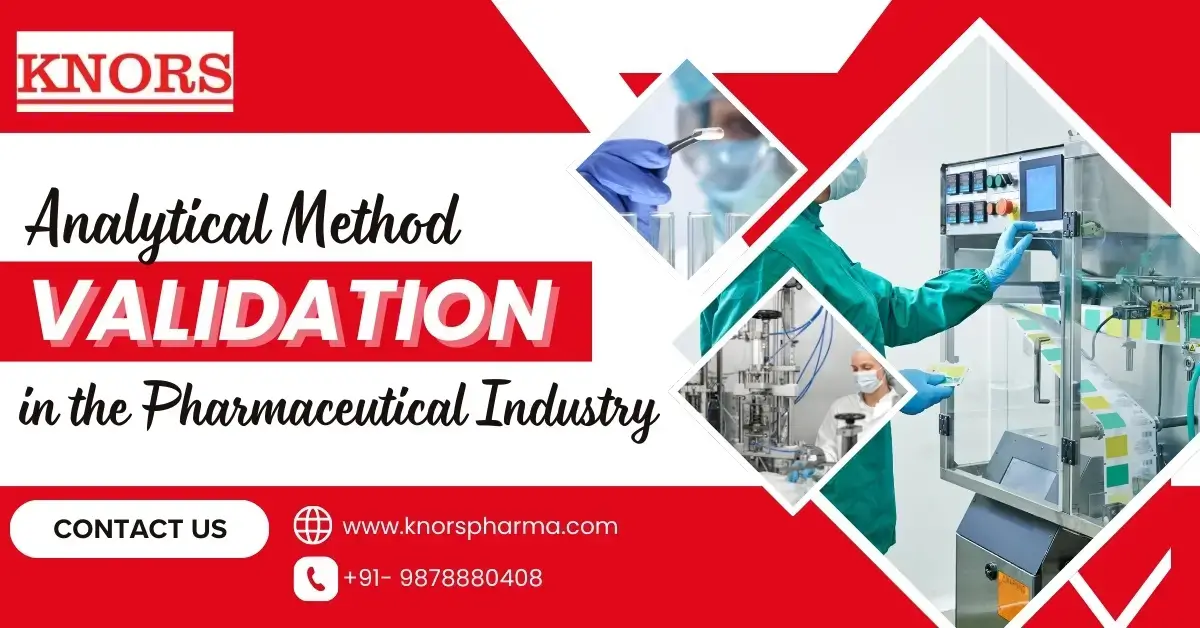Brief of the Analytical method validation
Analytical method validation is a prominent and crucial practice in the pharmaceutical industry. This always ensures the methods used to test and analyze pharmaceuticals are reliable, accurate, and consistent. With this technique, pharma companies and their manufacturing teams can ensure that the analytical method produces findings that are near the real value of the products. Even precision guarantees that the procedure produces consistent results under the same conditions over several runs, which is critical for repeatability. Moreover, regulatory authorities such as the FDA, EMA, and ICH have strict standards that demand verified methodologies for drug testing. As a result, compliance with these standards is required to get and retain market approval.
In addition, validated procedures are critical for identifying impurities, pollutants, or degradation products. Because this can jeopardize customers’ safety. Thus, accurate measurement of active components ensures that the medicine works as planned and has the desired therapeutic benefits. Moreover, analytical technique validation helps establish the robustness of the process used in quality control laboratories. This gives a guarantee that each batch of pharmaceutical and medicine items fulfills predetermined requirements. Most importantly, it guarantees that analytical findings are trustworthy and consistent between batches and across time, which is crucial for product quality maintenance.
As a result, we can say that analytical method validation in pharma sector is always a hugely critical element.
The important key parameters for analytical method validation are
- Specificity: Refers to a method’s ability to accurately quantify one analyte in the presence of other components.
- Linearity: The method’s capacity to generate findings is proportional to the concentration of the analyte.
- Range: This refers to the range of analyte concentrations that the technique can correctly measure.
- Detection limit: The detection limit is the smallest quantity of analyte that is reliably detected.
- Robustness: Robustness refers to the technique’s ability to stay unaffected by tiny, purposeful changes in method parameters.
- Ruggedness: The extent to which the procedure is unaffected by differences in operators, instruments, or laboratories.
Why does the pharmaceutical sector utilize the analytical method?
Analytical technique verification is constantly in high demand and required in the pharmaceutical business to manufacture a legitimate range of healthcare products. Businesses that employ these strategies reap the benefits of verified procedures. This provides them with trustworthy data to make decisions about product development, clinical studies, and regulatory filings. As a result, this authentic data helps them detect and manage risks related to medicine research and manufacture. Furthermore, erroneous or inconsistent test results can lead to costly product recalls that damage a company’s brand. Proper validation helps to avoid legal issues involving product safety and efficacy claims, minimizing the risk of litigation. Validation, on the other hand, identifies potential areas for method improvement while also validating that the methodology works effectively in a variety of settings. This also makes it easy to tailor procedures at different stages of pharmaceutical research and manufacture.
A pharmaceutical business can profit significantly from the analytical method verification procedure.
- Improves the dependability of data: Decision-making Verified methodologies give reliable data for product development, clinical trials, and regulatory filings. Furthermore, trustworthy data helps you identify and manage risks connected to medication formulation and production.
- Prevents product recalls and liability issues: Most of the time, it has been seen that inaccurate or inconsistent test results can lead to product recalls. This can be costly and damage a specific company’s reputation. However, proper validation helps avoid legal issues related to product safety and efficacy claims and also reduces the risk of litigation.
- Supports method development and improvement: This technique identifies potential areas for method improvement, ensuring that the analyzing method performs optimally under a variety of conditions. Hence, this facilitates the adaptation of methods for different stages of drug development.
- Ensures method transferability: This ensures that methods yield consistent results across different laboratories, which is especially important for multinational operations.
- Builds confidence in analytical results: With the help of validated methods, medicine producers build trust with regulatory authorities, customers, and other stakeholders by demonstrating their accurate data. Also, accurate and consistent analytical results support successful product registration and market acceptance.
Finalisation
Finally, to come to the final part of our discussion, we want to tell you that we have deeply shown you the importance and uses of analytical method validation in the pharma industry. This gives various benefits to the pharma companies that use this process. As a result, we want to tell you that in India, only Knors Pharma can fulfill all your analytical method verification process needs, so you can get our services anytime.
Frequently Asked Questions:
Question.1 What are the common steps in the validation method for pharma items?
Ans. Here are a few key phases in this process:
- Initial method development includes creating and optimizing the analytical technique.
- Developed a validation approach that defines testing settings and acceptance criteria.
- Experimentation entails assessing the approach against validation parameters.
- Validation documentation requires recording outcomes and creating a report that describes the procedure.
- Examine the validation data to confirm that it meets all requirements and is appropriate for its intended usage.
Question.2 Why is it important to validate analytical methods?
Ans. Validation ensures that the analytical processes employed in drug research and manufacture provide correct results. This is also used to ensure regulatory compliance, product quality and safety, risk reduction, and stakeholder confidence.




